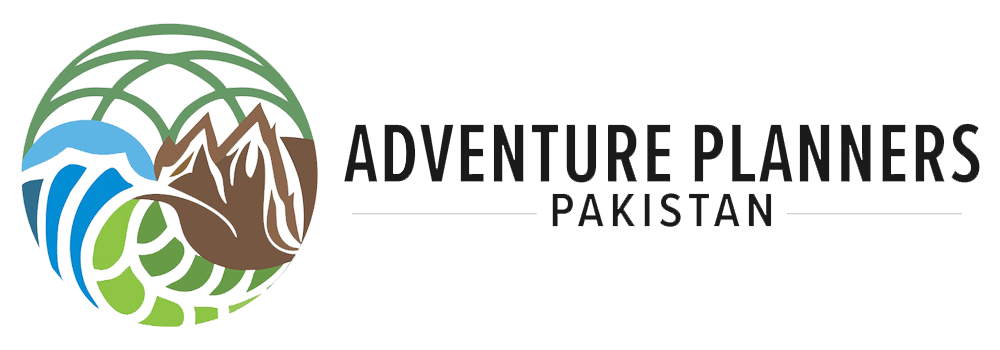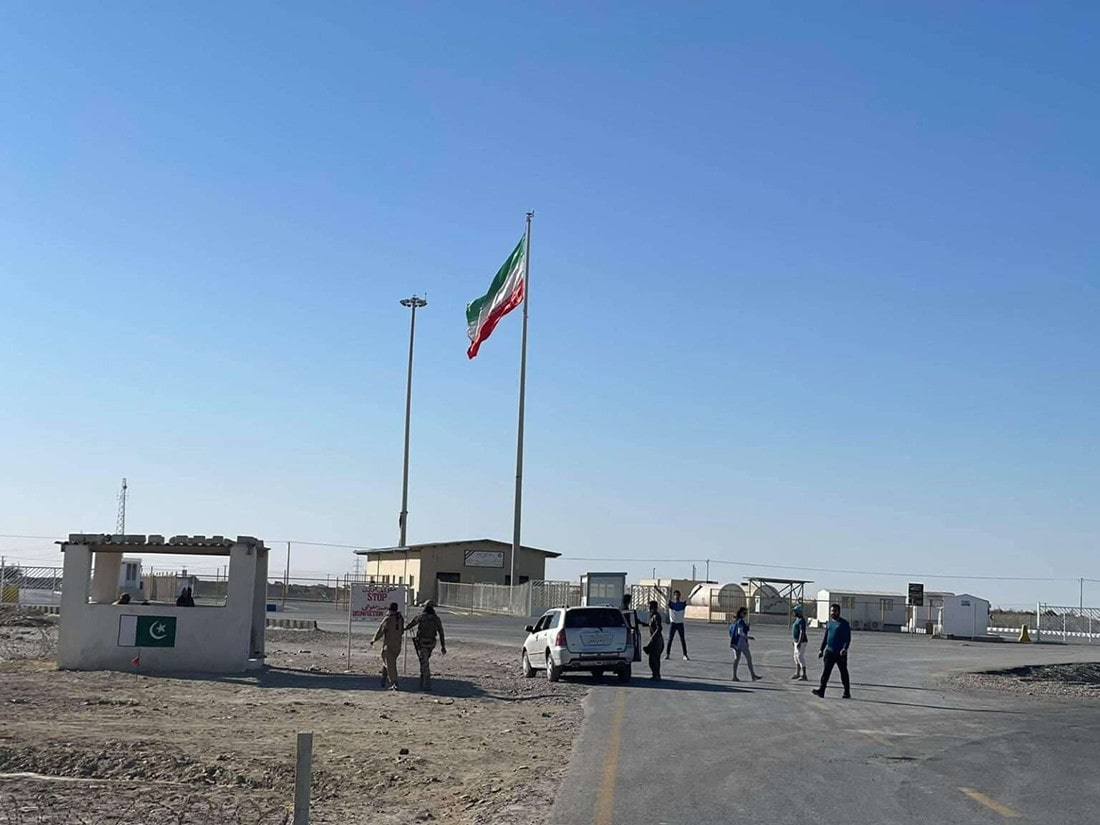Overland Pakistan-Iran – Guide 2025
The majority of Pakistan’s land borders are open. Many travellers cross overland between Iran & Pakistan all year long and use the Taftan or Rimdan border for this.
Here is a guide to the Iran-Pakistan border crossing for anyone who wishes to travel overland either by car, on foot, on a motorcycle, or on a bicycle.
This guide will give you information about both Taftan and Rimdan borders so you may choose any of them wisely. The best recommendation is the recently opened Rimdan border, which has many advantages over the previously used Taftan border crossing.
Option 1 – Gabd/Rimdan Border:
Many travelers are still unaware of this border crossing. In recent years, another major border crossing between Pakistan and Iran has been inaugurated: the Gabd/Rimdan Border (Coordinates 25.3794521, 61.6575647). Foreigners or Iranian/Pakistani Nationals all need to have their Original Passports and valid visas for both Pakistan and Iran to cross.
Located between Gwadar and Chabahar’s port cities, a trip between Iran & Pakistan via the Gabd Rimdan border covers hundreds of kilometers along Balochistan’s scenic and breathtaking Makran coast. The road between Karachi and Rimdan is magnificent and is in very good condition. There are only two stretches on dirt road and rest just occasional potholes in the road.
Due to its convenient location, crossing this border is significantly better and less challenging than the previously used Taftan border as the distance is comparatively much shorter, and you don’t need to obtain an NOC on this side.
This border crossing is open from 8:30 am till 2:00 pm PST every day EXCEPT every Friday on the Iranian side and every Sunday on the Pakistani side. It is also closed on any other National Holiday at both sides.
1A)- Traveling with own Vehicle using Carnet De Passage CDP:
Recently (Since April 2025), this border has also started facilitating travelers with their own vehicles/motorbikes holding valid Carnet De Passage (CDP). After this, there have already been few successful crossings (both ways) by foreigners travelling on their camper vans. It took them just a few hours to complete the immigration and customs clearance process. Although authorities here are still new to the CDP vehicles, especially on the Iranian side so you might have to insist a bit but for sure it is officially open now.
1B)- From Iran to Pakistan:
The border opens from 8:30 am till 2:00 pm. The Iranian side is closed on Friday, while the Pakistani side is closed on Sunday. After crossing from Iran to Pakistan you can straight away take a Bus to Karachi. The bus station named Al-Mumtaz (Coordinates 25.3782995, 61.6616058) is just 200 meters from the Immigration Office, and you can buy a ticket on the spot against Pak Rupees Cash only. Once you have the ticket, you are good to travel, and you will witness the beautiful journey of Makran Coastal Highway along the Arabian Sea.
If you are in your own vehicle, you can stay the first night in Gawadar, the port city near the Border, which is just about 1 hour away. The hotels that accept foreigner guests in Gawadar are Sadaf Resort (Coordinates 25.1257860, 62.3195134). It is an economy Hotel while Pearl Continental Hotel (Coordinates 25.1031165, 62.3282105) which is an expensive 4 star hotel. Remember you are allowed to travel but not allowed to stay anywhere in between Gwadar and Karachi if you don’t have NOC. To obtain NOC so that you can stop anywhere and explore around on this beautiful route it is mandatory to get in touch with a registered/authorised travel agent before hand. Only then you will be able to visit all the beautiful spots on the way. Feel free to get in touch with “Adventure Planners Pakistan” and they will help you to get this NOC.
1C)- From Pakistan to Iran:
From Karachi, you can either take the Bus or a Private Taxi directly to the Rimdan border. Or else a flight to Gawadar. You can then reach Rimdan border in one hour from Gawadar Airport.
Bus service named “Al Ansaar and AL Mahaaz” (الانصار اینڈ المعاذ) operate between Karachi & Rimdan. (The sign board for this Bus Office in Karachi is only written in the Urdu language, but here are the coordinates for it: 24°57’20.1″N 67°05’57.8″E). A Bus Ticket is 3000 PKR these days, but this may change overtime. The Bus Departs from Karachi at 7:00 AM every day and reaches the Rimdan border by 9:00 PM. You can buy the ticket in advance as well. At Rimdan, you can sit the night out in the waiting area of bus station or sleep at the Hooth Hotel (Coordinates 25.3784530, 61.6623511), which has all basic facilities just 100 meters from the bus station.
The border opens from 8:30 am till 2:00 pm. The Iranian side is closed on Friday, while the Pakistani side is closed on Sunday. From the border you may find a shared taxi or a bus to Chabahar. Chabahar is the closest city on the Iranian side, about two hours’ drive from the border. Famous for its shopping complex, traditional Balochi food, markets, and stunning beaches. It also has an airport and bus terminal with limited service to cities like Shiraz, Kerman, and Zahedan.
Option 2 – Mirjaveh/Taftan Border Crossing:
The Mirjaveh/Taftan border crossing (Coordinates 28.9775211, 61.5503152) has been used since ages by travellers between Pakistan and Iran. This side is comparatively more complicated and more distant as compared to Gabd/Rimdan. Foreigners need to obtain an NOC from the Home Department office in Quetta city for traveling on this side (both ways), and the movement between Taftan & Quetta is also restricted to convoy formation only. It doesn’t matter if you are travelling by foot or with your own vehicle/motorcycle. Even you will be able to take a bus also when the police allow foreigner’s movement. Sometimes, they make you wait for days or even weeks until they form a convoy and then move all together between Quetta and Taftan. So, plan your trip accordingly.
2A) – Bam/Zahedan to Taftan:
Keep in mind that if you are traveling by public transport, you will presumably leave from Bam or Zahedan. You will come across two checkpoints between Bam and Zahedan and two checkpoints between Zahedan and the border. Many people opt to go directly from Yazd as many say accommodation in Kerman is expensive and there isn’t much to see. You may pass through Bam with about four or five police checks. There may be a chance that there is no police escort, no passport inspections, and you may never have to step out of the bus for any sort of registration.
You will find a few Hotel options here. To get there you will have to take a taxi/cab from the bus station. Some hotels follow certain rules; for instance, they will call the police when you check out, or you will be escorted to the border. Also, you may be taken to the police station first, where your passport will be verified – a normal but daunting procedure. You may be picked up by the Border Patrol (armed men) to usher you to the border.
If you are not escorted by the police, you can make your way to the border independently. Staying at a hotel is one option, but you can also find host families in Zahedan. Additionally, you can hitchhike or take public transport such as a bus. The advantage is that the checkpoints won’t bother you too much. If you are traveling on a motorbike or your own transport, the benefit is you normally don’t get an escort and won’t be stopped by every checkpoint.
2B) – Taftan to Dalbandin:
The distance between Taftan and Quetta is approximately 600 km and will take two days to reach. On the first day, you will reach a city about halfway through, called Dalbandin. It’s a comparatively comfortable ride. If you are on public transport, you may change your vehicle around three times or else find a direct bus from Taftan to Dalbandin. It will take you nearly six hours to reach Dalbandin. The authorities on the way are cooperative, hospitable, and friendly.
Once here, you will be taken to a hotel and won’t be allowed to leave your room to wander about. Don’t expect a fancy stay. There may be power failures, which is normal. You may find a shop or two near the hotel. Stock up on your supplies if need be. If you are traveling on your motorbike or hitchhiking and want to save money, you can request the authorities if you can find cheap accommodation or sleep at the police station free of charge.
2C) – Dalbandin to Quetta:
This is perhaps the longest ride of the trip. It will take approximately 12 hours! Either you take a bus directly from Dalbandin to Quetta or else on local transports you might have to change 10 vehicles after different intervals.
Once you reach Quetta, the only hotel choice here for foreigners is the “Bloom Star Hotel” (Coordinates 30.1894597, 67.0048216), as other hotels are not allowed to facilitate foreign nationals. The police will bring you to this particular hotel, and it is close to the train station and the Home Department office for NOC as well. It’s not very costly, but you can still bargain. Staying at the Police Station is another option (if they agree)!
2D) – NOC in Quetta:
Before you leave Quetta in any direction, you need a No Objection Certificate (NOC). You will get it from the Home Department of the Balochistan office in Quetta city. Police will escort you from your hotel to this office. The NOC is free but issuance can take from half an hour to three hours and only possible on a working day during office hours. The office is closed on Saturday and Sunday, and is only open till noon on Friday. The people at the home office are cooperative and welcoming.
Your NOC is only valid to travel upon for the exact date which it is issued for. We recommend to ask the officials to make it valid immediately starting from the time of issuance until the next day. So that in case if you miss your train or public transport same day you will still have the permission to stay another day in Quetta. Make sure you go to the train station right after you receive your NOC to book/buy a train ticket to your next destination at earliest.
2E) – Quetta to Karachi/Sukkur
After obtaining the NOC then you can either fly to or else take the train to Karachi / Sukkur / Multan / Lahore / Rawalpindi or Peshawar from Quetta City Railway station (Coordinates 30.1914782, 67.0011554). Train takes about 23 hours from Quetta to Karachi.
If you are riding a motorbike or driving your own vehicle, you will only be allowed to go to Sukkur from Quetta via N65 Highway and police will escort you all the way. You will be allowed to go on your own to Karachi or any other city from Sukkur onwards.
Few Things to Keep in Mind:
- Avoid clicking pictures and video recordings of the officials (military, police) or border crossing.
- Avoid bribing authorities on the way – military personnel, policemen, a layman, etc.
- Bring some cash to exchange at border for Bus ticket and food items. Cash is only accepted for bus ticket and at hotels.
- Purchase food items and essentials before heading out.
- Ensure you have enough food, water, or whatever you may need for a three-day trip. Some good options are biscuits or cookies that won’t easily crumble, dried fruits, nuts, trail mixes, mouth fresheners, sugar-free gums, candies, and chocolate, preferably with nuts.
Disclaimer: The Above information is gathered from the travellers who have experienced it themselves, and information can vary. You may gather information from other sources as well.


